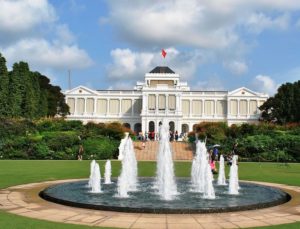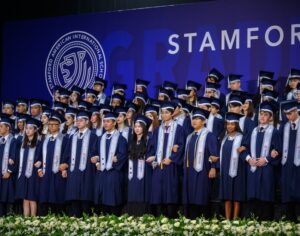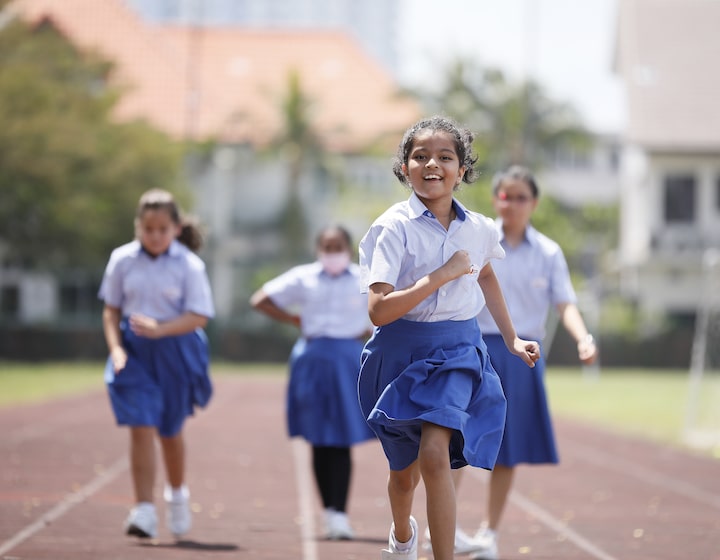
With great school facilities, extra activities in music, performing arts and more, plus a stellar IB PYP curriculum, Global Indian International School is a great choice for well-rounded students!
If you’re looking for a school in the East that has international and Indian curricula from Kindergarten until Grade 10, nurtures well-rounded students, and takes its sports seriously, it’s time you heard all about GIIS! We spoke with Ms. Odaia, International Baccalaureate Primary Years Programme (IB PYP) Coordinator at GIIS, East Coast, to find out all about this international school. Wait till you hear all about their amazing sports facilities (think an in-built stadium, tennis courts, a football ground, cricket pitches, table tennis and badminton courts), the specialised training by best-in-class instructors at no additional cost, cocurricular activities in music, performing arts and how they nurture students to “become the difference that the world needs”.
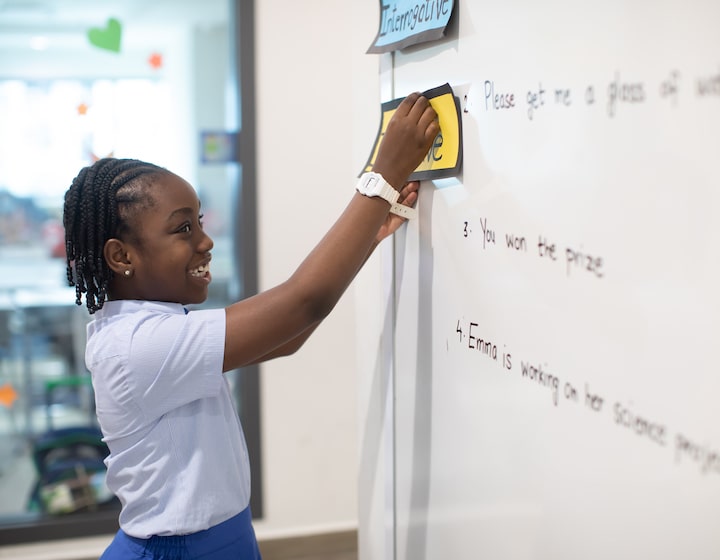
What makes the IB PYP at GIIS East Coast campus special?
What makes our programme special at the GIIS East Coast campus is our PYP community of teachers, students and parents who embraced the PYP pedagogy and philosophy with open arms and lots of enthusiasm. From the time we started on our PYP journey (for students in Grades 1 to 5) in 2018 until today, our learning community has been ever supportive and are eager to get engaged and involved in any aspect of our programme.
We strive to nurture students holistically and we have many extracurricular and cocurricular activities for students in music, performing arts, sports and other areas.
We also have extensive sports facilities at our expansive East Coast campus that spreads over 8.8 acres, including: a 400m synthetic track and field area with an in-built stadium, tennis courts, a football ground, cricket pitches and practising nets, table tennis and several badminton courts. Students also have access to a Gold Squad Accelerator Programme (where hand-picked students, who show promise and talent in their sport, are given additional specialised training by best-in-class instructors at no additional cost). This gives our students the opportunity for a well-rounded education where they can excel in different areas.
What does a typical day look like for a PYP student at GIIS?
Our day usually starts with Circle Time where the class and their homeroom teacher gather around for a short morning reflection and prayer, go through their class essential agreements, talk about the attributes of the Learner Profile that they wanted to focus on for the day and decide on their agenda for the day. Students get a chance to share anything they want; it could be a story they read, news they heard or any special event that they had recently. Throughout the day, they will be inquiring into concepts and actively participating in learning engagements that are engaging, significant, challenging and relevant to them. There usually is a balance between academic and co-curricular activities each day and throughout the week. There is never a dull moment in PYP classrooms as the children are always actively involved in fun learning engagements and they always go back home with a smile on their faces.
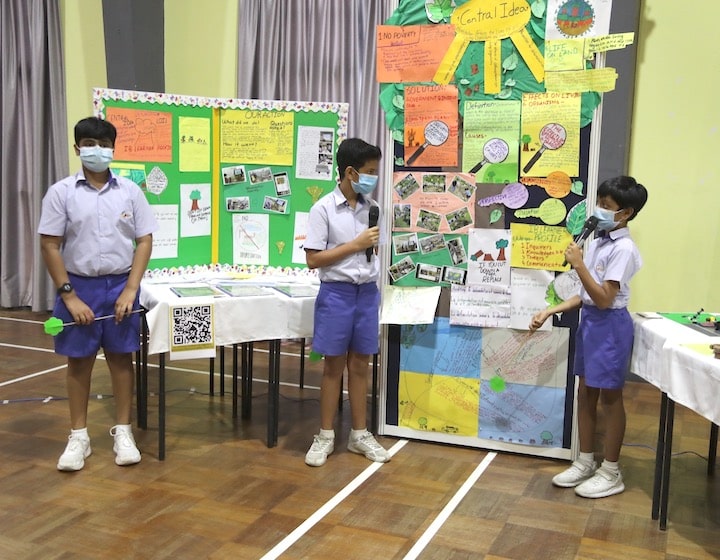
PYP is an inquiry-based curriculum – how does that translate into action at GIIS?
As referred to by IB, the PYP offers an inquiry-based, transdisciplinary curriculum framework that builds conceptual understanding. When we say inquiry-based learning, we mean that the students actively participate in engagements, discussions, questioning, experiments and always asking “why,” “what if,” and “so what?” We urge students to always find connections in real-life situations and in their personal experiences. When our students inquired about what causes water pollution, they took their own initiative to go to the East Coast Park (ECP) beach and conducted a beach clean up with their friends and family. We encourage them to take action based on their learning and these little steps are celebrated and acknowledged in class and in our assemblies. These also nurture them into global citizens.
How is PYP a transdisciplinary framework? Can you share some examples?
Transdisciplinary by definition means relating to more than one branch of knowledge. In the PYP, we believe that in order for students to be able to have a learning experience that is engaging, relevant, challenging and significant, there is a need to use an approach that would allow them to transfer their knowledge, understanding and skills between, across and beyond subjects- providing them with an opportunity to incorporate local and global issues into the curriculum and allow students to be able to transcend beyond the confines of learning within subject areas.
Here’s an example: one of the units that our PYP Grade 2 students had was on the big idea that “People around the world value money in different ways.” This unit fits into the Transdisciplinary theme, “How we Organize Ourselves” which focuses on the inquiry into human-made systems; economic activities and their impact on humankind. This unit revolves around our social environment. However, this unit allowed the students to also learn more about measurement- money, numbers and at the same time they were able to integrate languages.
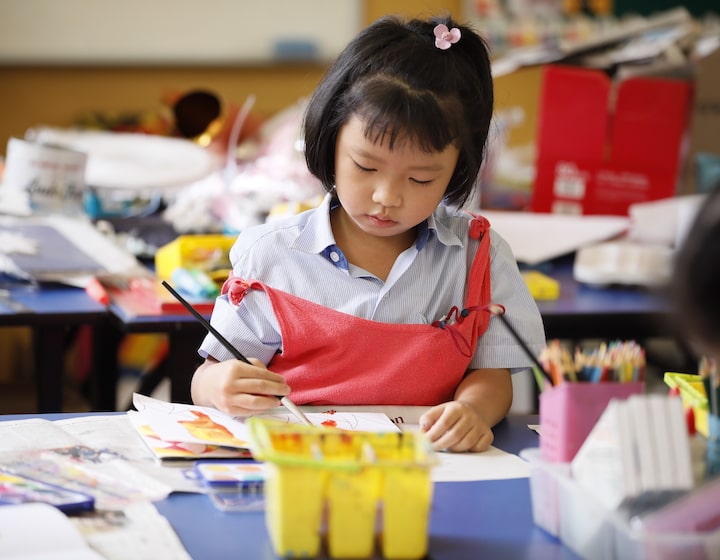
The PYP approach is different from traditional learning methods, with varying assessments. Would you like to elaborate?
In PYP, the purpose of the assessment is to inform the learner about how they are doing (where they are in their learning process) and where they are going and what they need to do to get further. The focus of the assessment is on the process of learning rather than the final outcome.
I always tell parents who are new or unfamiliar with the IB PYP programme that the biggest difference between traditional learning and PYP is that we focus more on ‘how’ our students learn rather than focusing only on ‘what to learn’. Students explore concepts, develop and apply skills and transfer their learning into their daily lives. We constantly challenge our students to make connections with their personal experiences or interests, or with local and global issues.
In terms of assessments, we do not just rely on tests and exams to gauge what our students know. We use a variety of assessment strategies (like projects, presentations, models, video logs, exhibitions, etc) and tools (like rubrics, checklists, continuum, etc., which are sometimes co-created with students) to assess what our students know and can do. Hence, students are aware of what quality and achievement will look like and work towards it and can self-assess their work, reflect on their performance and make goals to improve further.
We do these assessments all throughout the unit – at any stage of the students’ learning.
What are the key values GIIS students learn from the IB PYP?
This question makes me reflect on the IB’s mission statement which closely aligns with our school’s mission and vision statement. “The IB aims to develop inquiring, knowledgeable and caring young people who help create a better and more peaceful world through intercultural understanding and respect.” The ultimate goal of all of our IB learners is to become the difference that the world needs. Imagine a world full of such individuals, what would our future be like?
In the PYP, students learn how to learn and thus become lifelong learners. They become inquirers and thinkers by dwelling on global issues and finding solutions to present-day problems. Students take ownership of their learning and learn to self-regulate it. IB PYP develops International mindedness among students who understand, appreciate and value the diversity of cultures in the world. They see themselves as responsible, global citizens.
Why do you think parents should choose the PYP at GIIS for their child?
The school offers a robust academic foundation during the primary years that lead to excellent academic results as our students progress to secondary and high-school levels, at a highly affordable fee without compromising the quality of learning. The GIIS campus offers a conducive environment for an enhanced IB PYP learning experience. Digital classrooms in small-size cohorts provide students with a highly engaging learning experience. Our IB certified teachers handle the classroom vibrancy through creative nurturing and collaboration. They are patient and dedicated individuals with a passion for education and thorough training in handling curious and enthusiastic primary grade students.
Thanks for your time, Ms. Oadia! If you’d like to know more about the IB PYP at GIIS and how we nurture students to develop a life-long love of learning, get in touch with GIIS!
Global Indian International School, SMART campus, 27 Punggol Field Walk, Singapore 828649, Tel: (+65) 6914 7100,
GIIS East Coast campus, 82 Cheviot Hill, Singapore 459663, Tel: (+65) 69147000,
www.singapore.globalindianschool.org





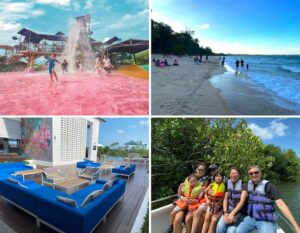
 View All
View All




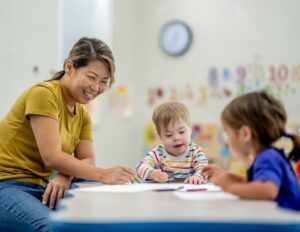
 View All
View All








 View All
View All